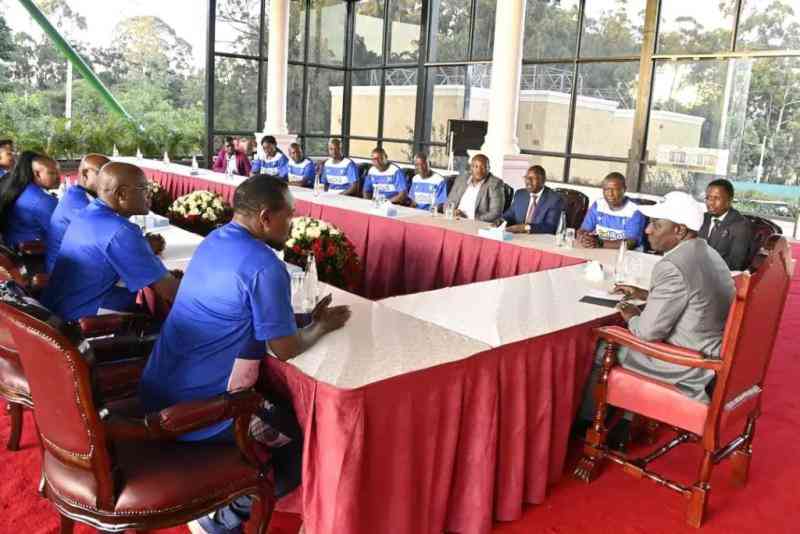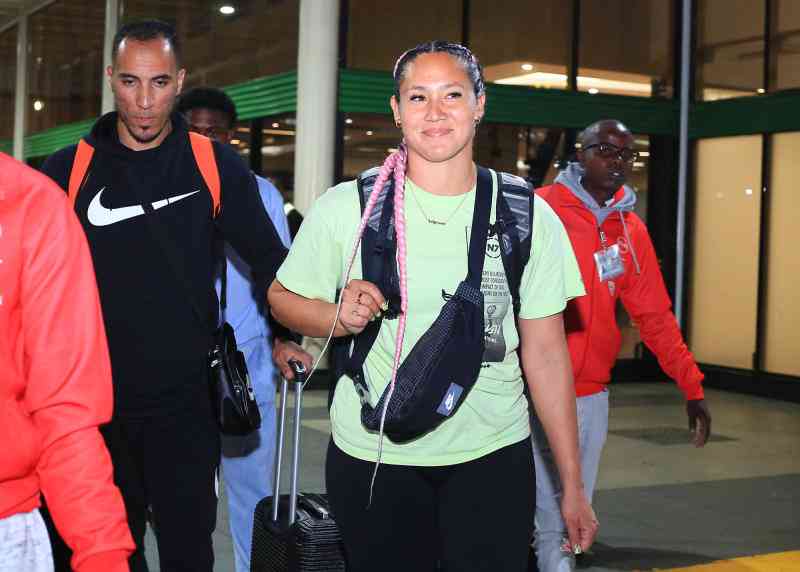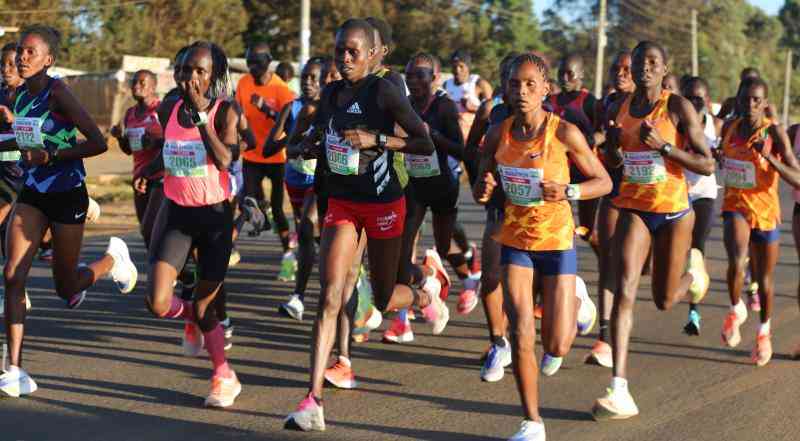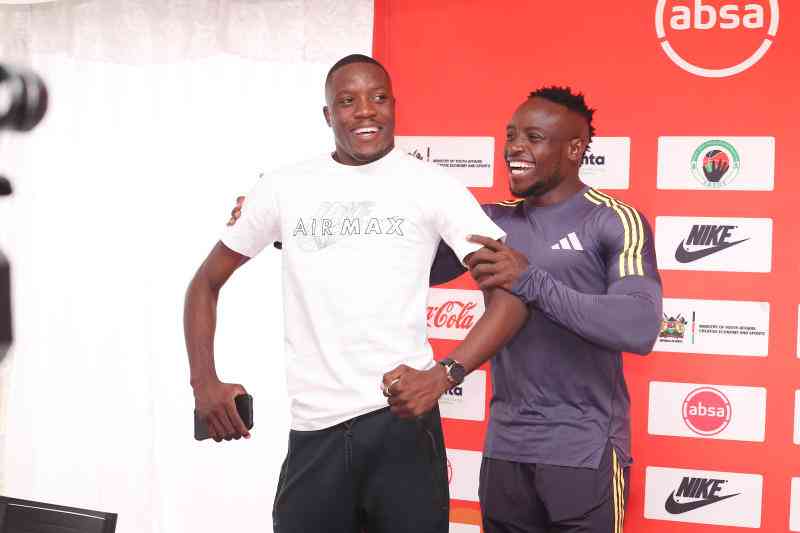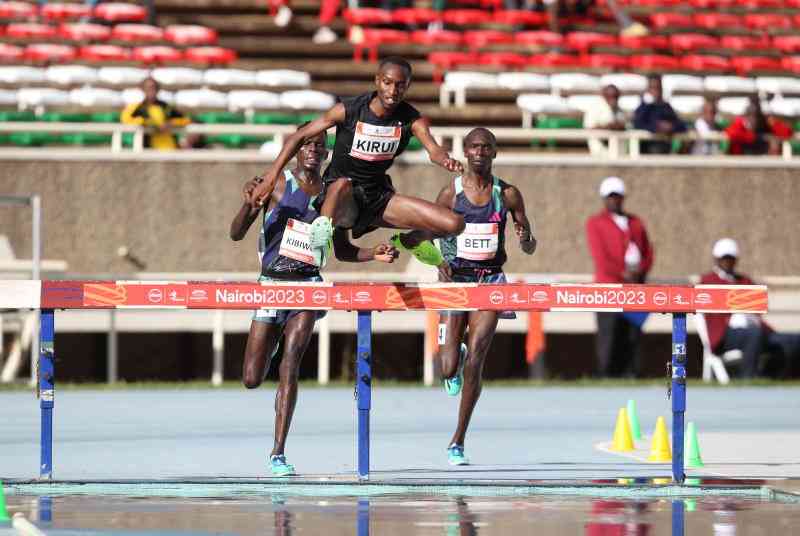Kenya's three-time world 1,500m champion Asbel Kiprop is in a state of excitement and trepidation. Even as he pounds the foot paths meandering inside the forests in Elgeyo Marakwet or the murram track of Chepkoilel campus outside Eldoret, some 350km north west of Kenya's capital of Nairobi ahead of a busy season, he is very unsettled about the future of the sport he so cherishes.
Reports about widespread doping among his compatriots ever since road racer Mathew Kisorio sensationally confessed in a German national broadcaster, ARD four years ago, followed by the dramatic doping test failure by three-time Boston and Chicago Marathon winner, Rita Jeptoo, in 2014, have hung over the Kenyan elite athletes like the albatross.
Kisorio has since finished his two-year ban, which was imposed in 2012, and resumed competition. Jeptoo is still serving her two-year ban.
With only hours remaining before the World Anti-Doping Agency (Wada) makes a second announcement of the state of global doping, which is expected to be explosive and sensational, coming on the heels of the first one madein November 2015 in which it cited Russia as a systemic doping nation, Kiprop says he is embarrassed and ashamed by the reports of doping swirling around Kenyan athletes like a cloud of hailstones. World athletics ruling body, IAAF, has since excluded Russia from all international athletics competitions, including Olympic Games in Rio de Janeiro this summer.
Kiprop is angry that indicted athletes have gone mute. He is wondering why convicted athletes are not opening up on the scourge.
"Personally as Asbel, I feel ashamed and embarrassed that a sport I belong to, a sport that I am proud of and that has made my name and where I am earning a living is undergoing such turbulence," Kiprop, 26, toldFeverPitch in Tambach, on the edge of Kerio Valley near Iten, deep inside Kenya's Rift Valley Province where he is training for the Olympic Games season, at the weekend.
"Among us are athletes who are doping, there is no doubt about that. I am condemning them because they have soiled our name as an athletics nation. For some of us with the athletics DNA in our blood, these reports have come at a very wrong time.
"But what I cannot understand is why they are not coming out openly in the media to expose those who lead them into the vice. Among us (athletes), they talk freely and tell us everything. Kisorio was very open about it. The athletes who have failed doping tests tell us those who led them to this or that doctor, or pharmacy. Why can't they expose these people? I don't know what oath they took with these doctors," says Kiprop, a holder of one Olympic Games and three world 1,500m titles.
Kiprop, who says he wants to win a fourth world title in London in 2017 to reach Moroccan Hicham El Guerrouj's feat as the world's greatest middle distance runner with four world titles, wants the government to legislate laws to criminalize doping.
"While I don't want to comment much on whether the athletics federation is doing much to sort out this mess, I think the Government has a bigger role in helping end this scourge by bringing laws in parliament to make it a crime to abuse doping in sports," he said.
He also thinks the election of Lord Sebastian Coe could not have come at a better time to save the sport from further embarrassment and decline.
"The sport needed somebody like Lord (Seb) Coe to breath a fresh air into it. He is an athlete, an Olympic champion and a steadfast champion of the sport," he said.
Kiprop said doping is real in Kenya, but not to the same level as countries like Russia. Doping, he says, is rampant in the world of sports, whether in athletics, cycling, football or boxing, but insists that governments are the one to help fix it. He says the World Anti-Doping Agency (Wada) has also confirmed that doping is a menace in the world of sports, including Kenya.
Kiprop deftly deflected questions as to whether the Kenyan federation is doing enough to tackle the doping menace or simply looking the other way.
"My job is to train and compete. If I qualify at the trials, I represent my country at the global stage. That we have done very well, including last year when we topped the world in the World Championships (in Beijing). That could not have happened if the system in Kenya is not working.
"It does not matter who is running the federation today or yesterday or tomorrow. I am an athlete and my duty as an athlete and a police officer is to run and execute that function diligently. I don't want to comment on political matters," he said.
He said although they have hope that Kenya will not go the Russian way (by being excluded from the Rio Olympics) when Wada makes the second announcement later today, it would be sad if that happens.
"We train to represent our country internationally. Our employer (Kenya Police) has permitted us to train here (in Iten) and we do so wholeheartedly. If we are banned, it will be sad for Kenya and the entire world of sports. I don't think it will reach that level," he said.
"Right now every athlete is focusing on the Olympics. We are all aspiring to win Olympic Games titles. If that (exclusion from the Games) does happen, it will be disastrous. But on my part, I have another ambition, call it a dream, to win a fourth world title and reach the milestone of being the greatest (1,500m runner) ever," he said.
His training programme is picking up momentum in the undulating hills of Tambach, which nestles on the Kerio Valley escarpment. He trains with a platoon of athletes under the management of Dr Gabriele Rosa and his son Federico, whose Rosa Associati camp has suffered the most casualties of doping culprits among Kenyan athletes, among them road racer Mathew Kisorio, former three-time Boston and Chicago Marathon winner Rita Jeptoo and Agatha Jeruto.
He says one of the coaches left the management, was suspended under a cloud of doping allegations, and quite a number athletes, who were loyal to him, followed him.
"But I did not see the point of quitting the management because my coach was different and I am happy with him. He (David Letting) draws my programme which I follow religiously," he said.
While his main focus will be on Olympics this year, Kiprop will also be running at his favorite Diamond League meetings in Doha, Oslo, Monaco and Rieti. He has won three times in Monaco and four times in Oslo. He has also won Doha, including in an 800m race.
His training started in November and the second part will go into this month. "We have done the first and second part of training. We have been doing the build up, intervals, endurance and resistance training. I report to camp on Monday morning, train for six days and break on Saturday to stay with family. We do morning runs and the main session at 10am to midday then stretching and jogging in the evening," he says.
Tempted to cheat? Never. Not even a single day. Never seen anyone coming to me to use those things, he says. He is blaming athletes and the doctors who administer such drugs on them, but exonerates coaches and managers.
Parting shot. "I like to add that upcoming athletes must do it right. Let's do it right. Kip Keino, Ezekiel Kemboi, (David) Rudisha, myself, we have all done it right. If it is possible for us, why not for the young athletes. Impossible is nothing," he says.
 The Standard Group Plc is a multi-media organization with investments in media
platforms spanning newspaper print operations, television, radio broadcasting,
digital and online services. The Standard Group is recognized as a leading
multi-media house in Kenya with a key influence in matters of national and
international interest.
The Standard Group Plc is a multi-media organization with investments in media
platforms spanning newspaper print operations, television, radio broadcasting,
digital and online services. The Standard Group is recognized as a leading
multi-media house in Kenya with a key influence in matters of national and
international interest.
 The Standard Group Plc is a multi-media organization with investments in media
platforms spanning newspaper print operations, television, radio broadcasting,
digital and online services. The Standard Group is recognized as a leading
multi-media house in Kenya with a key influence in matters of national and
international interest.
The Standard Group Plc is a multi-media organization with investments in media
platforms spanning newspaper print operations, television, radio broadcasting,
digital and online services. The Standard Group is recognized as a leading
multi-media house in Kenya with a key influence in matters of national and
international interest.



